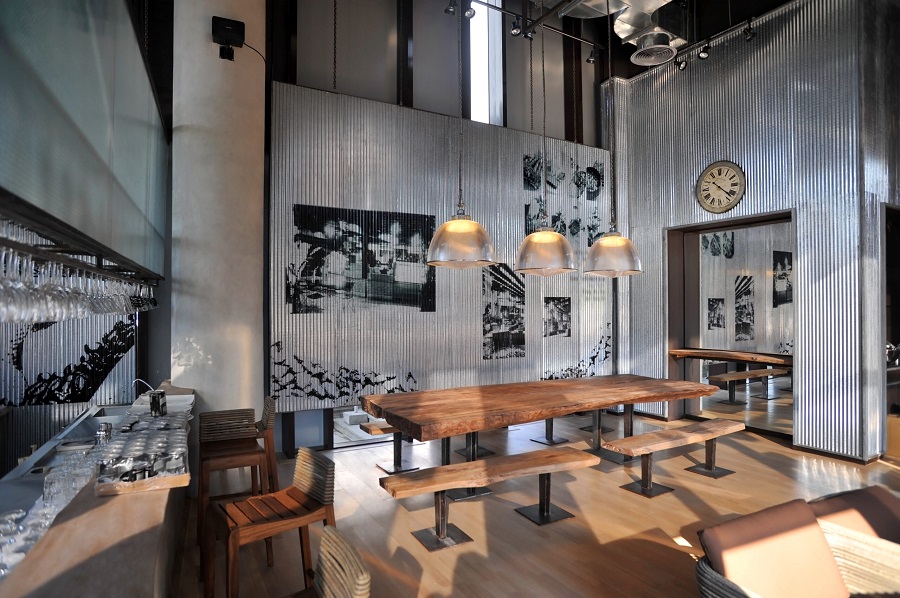Key Takeaways:
- Cafes serve as vital social hubs, fostering connections among diverse community members.
- They support local artists and musicians by providing platforms for showcasing talent.
- Many cafes engage in sustainable practices, contributing positively to the environment.
- By hosting events and workshops, cafes encourage community engagement and learning.
Introduction
In neighborhoods all over the world, cafes are redefining what it means to be community hubs. Beyond simply serving espresso or pastries, today’s best cafes actively nurture vibrant connections among people from all walks of life. Establishments like Vibrant Maroochydore Cafe show how a thoughtfully curated space can bring locals together, sparking creativity and forging enduring relationships. These local venues become more than just businesses; they morph into safe havens where creativity, discussion, and belonging can flourish.
These modern gathering spots have become synonymous with inclusivity, inspiration, and innovation. Whether you’re seeking a quiet table to work, a venue for a neighborhood event, or a gallery showcasing local art, a well-loved cafe is often the beating heart of its community. As we explore the many ways cafes support and enliven the places they serve, it’s clear their role extends far beyond coffee alone. Cafes act as places where memories are formed, friendships begin, and the character of a neighborhood is both celebrated and created.
Cafes as Social Hubs
Cafes act as essential gathering places for the modern community. Their relaxed environment, filled with the comforting aroma of coffee and the gentle hum of conversation, allows for a wide spectrum of social experiences. On any given day, you might find old friends reminiscing over lattes, entrepreneurs sketching out new ventures, or students collaborating on projects. What makes these spaces special is their openness—they welcome individuals from all backgrounds and foster connections that might never develop elsewhere. People from different generations, cultures, and walks of life often strike up conversations that lead to unexpected friendships and collaborations.
As informal meeting places, cafes break down barriers that often exist in more traditional social environments. Watchful baristas frequently know regulars by name, creating a sense of recognition and belonging that enhances the overall communal atmosphere. For many, the social fabric woven in cafes provides emotional support, combating loneliness and helping build meaningful relationships. According to The New York Times, the sense of comfort and community offered by local cafes is crucial in today’s increasingly digital and disconnected world. The continuous exchange of ideas within these walls makes cafes more than just “third places”—they are cornerstones of connection, offering a reliable respite or a cherished routine for countless people.
Supporting Local Art and Culture
Art and culture flourish in welcoming environments, and neighborhood cafes have embraced their role as incubators for creativity. Many cafes dedicate wall space for rotating art exhibits, giving local painters, photographers, and sculptors a venue to showcase their work. Musicians and spoken word artists also find a stage at regular open mic nights or intimate live performances, infusing the space with energy and passion. These initiatives not only provide valuable exposure to emerging talent but also create a unique vibe that resonates throughout the neighborhood.
By hosting and promoting events like art openings, poetry readings, or craft markets, cafes offer residents regular opportunities to engage with their local creative scene. These gatherings draw a diverse crowd and deepen community ties, allowing people to connect over shared interests and inspirations. Supporting local artists, in turn, guarantees that a cafe reflects and celebrates the spirit of its unique location, enriching everyone who visits. This intertwining of art, music, and everyday life gives the cafe an evolving character, ensuring that each visit feels fresh and inspiring.
Promoting Sustainability
Leading cafes are increasingly aware of their environmental responsibilities and are eager to make a difference in their communities. Many have made significant strides in sustainability, championing eco-friendly practices that reduce waste and carbon footprints. Sourcing ingredients from nearby farmers, switching to compostable packaging, and reducing single-use plastics have become increasingly common. Innovative partnerships—such as working with local composters to transform coffee grounds into fertilizer for community gardens—demonstrate commitment to both the environment and the neighborhood. Local procurement policies support area farmers and reduce transportation emissions, creating a circular benefit for all.
These efforts not only resonate with environmentally conscious consumers but also inspire broader change. By making sustainability visible and accessible, cafes encourage patrons to adopt greener habits in their daily lives. The conversation around sustainability is enriched when neighborhood cafes act as visible leaders in eco-friendly innovation, and their collective impact can help push broader environmental movements forward. The Guardian highlights that small businesses, including cafes, often pioneer sustainable models adopted by larger industries afterward. These pioneering steps, no matter how small, can educate and motivate patrons to reflect on their own consumption choices, helping to instill community pride in environmental leadership.
Hosting Community Events
The flexible, welcoming atmosphere of a cafe makes it an ideal location for a range of community gatherings. Many cafes open their doors for a variety of events, including children’s storytime, professional networking, language exchanges, book clubs, and wellness workshops. By offering a neutral, accessible space, they enable different groups to come together to learn, grow, and support each other. Such events are essential for fostering a collective identity, rooting individuals in shared experiences, and promoting mutual understanding. Regularly scheduled events also provide a sense of routine and anticipation, helping people look forward to meaningful social engagement.
Additionally, by serving as venues for charity fundraisers, local planning meetings, or volunteer drives, cafes encourage active civic engagement. They often collaborate directly with community organizations or act as launch sites for grassroots initiatives, amplifying local voices and responding directly to community needs. The success of these events often relies on a cafe’s ability to adapt to different group sizes and purposes, melding hospitality with a genuine commitment to making a difference at the neighborhood level.
Providing Inclusive Spaces
Modern cafes are increasingly aware of the importance of inclusivity in building strong communities. Many go beyond simply providing tasty food and drinks; they create environments in which everyone feels genuinely welcome. This inclusivity may take many forms—accessible entrances and seating for those with disabilities, signage in multiple languages, gender-neutral bathrooms, or pay-it-forward programs enabling customers to purchase drinks for someone in need. These conscious gestures are vital for removing traditional barriers to participation.
Such thoughtful touches demonstrate the social commitment of today’s premier cafes. By proactively reducing barriers and extending hospitality to underrepresented groups, cafes support social equity and help all guests feel comfortable and cared for. These inclusive spaces naturally attract a diverse clientele, which strengthens the cultural richness of the entire neighborhood. With a reputation for openness and acceptance, a cafe can become a cherished gathering point for advocacy groups, newcomers, and long-term residents alike.
Enhancing Work-Life Balance
The boom in remote work has further elevated the significance of cafes as community spaces. Freelancers, entrepreneurs, and remote employees often flock to their favorite spots for a productive alternative to home offices. The gentle background noise, combined with the structure of a bustling environment, can boost focus and spark creativity. However, balance is key; while cafes are outstanding places for short work sessions and social interaction, maintaining boundaries helps ensure the benefits of mixing work with leisure without drifting into overwork or burnout. The subtle accountability that comes from being in a shared public environment can promote both productivity and intentional breaks.
The presence of strong Wi-Fi, ample outlets, and supportive staff assists in making these locales welcoming for those who blend work and social time. The best cafes foster both productivity and meaningful downtime, enabling patrons to transition smoothly between tasks and community connection. For individuals with flexible schedules, cafes can help structure the day, providing a natural transition between professional responsibilities and moments of relaxation.
Conclusion
Cafes have steadily evolved into the heart of their communities, driving cultural vitality, environmental responsibility, and authentic human connection. Through their ongoing support for the arts, dedication to sustainability, role as event venues, and commitment to inclusivity, they stitch together the social fabric of their neighborhoods. Establishments such as The Nines Emporium exemplify just how much a local cafe can transform and uplift the people it serves. As more cafes embrace their important role, communities everywhere are gaining not just places to drink coffee, but spaces to thrive together. The enduring popularity and growing influence of cafes underscore the deep human need for connection, creativity, and community—needs that, when met, have the power to enrich cities and neighborhoods for generations.

